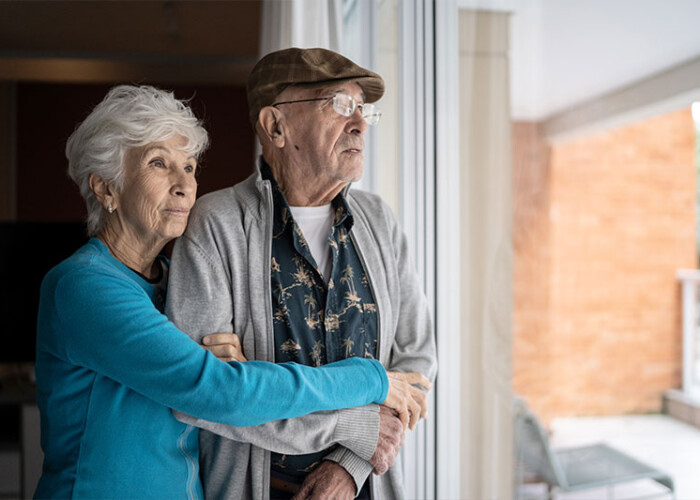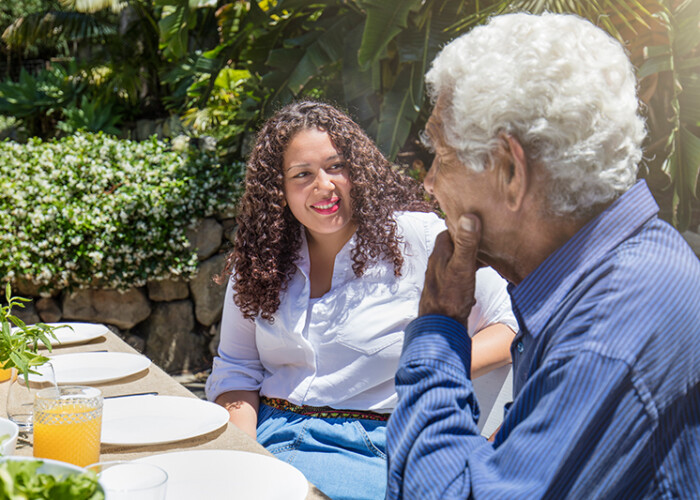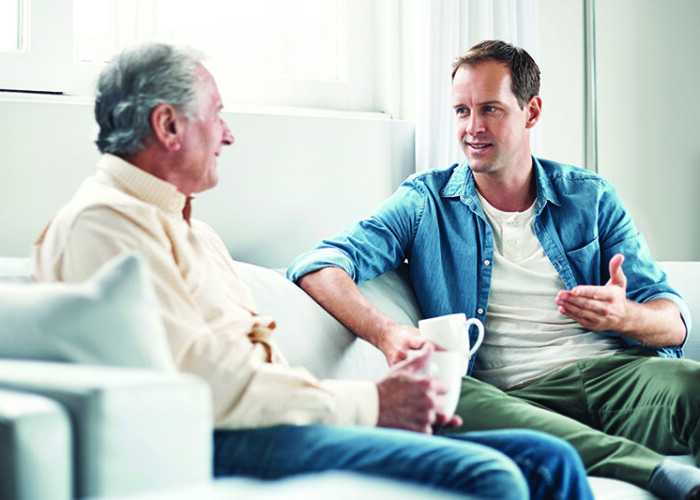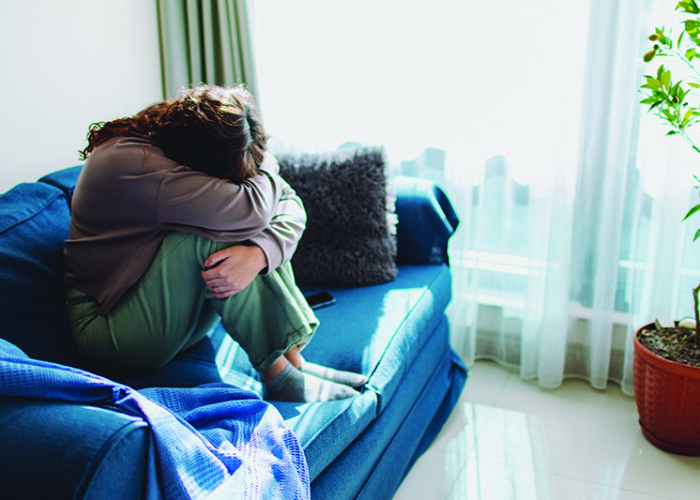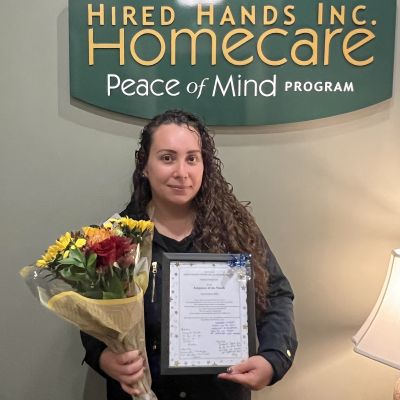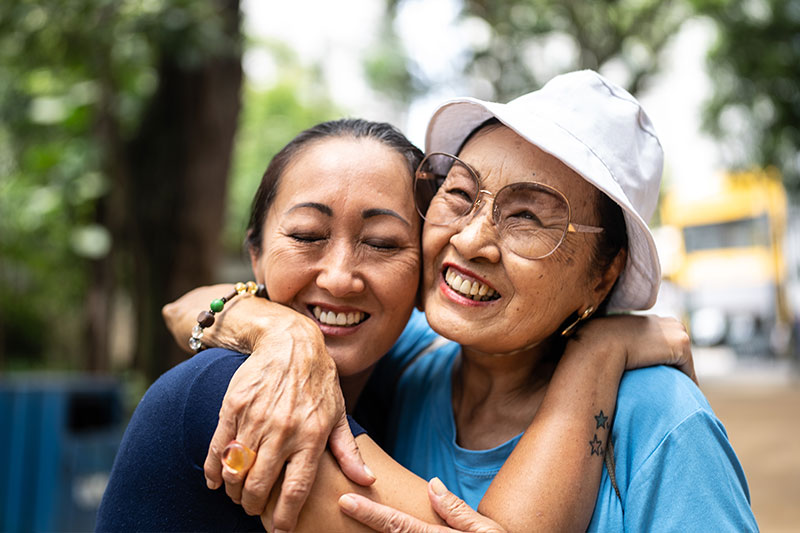Caregiver Support Tip
When Love Feels Heavy: How to Cope With Spousal Caregiver Resentment
Spousal caregiver resentment can leave you riddled with guilt, but you can overcome it with the right support.
You meant every word of those vows: through sickness and health, for better or worse. But no one warned you how exhausting it might feel to live those promises day in and day out as a caregiver. If you’re feeling overwhelmed, frustrated, or even resentful while caring for your spouse, take a deep breath: you’re not failing, you’re just human.
How to Handle Repetitive Questions in Dementia Without Losing Your Cool
Repetitive questions in dementia aren’t always easy to manage, but these tips will help.
If you’ve ever heard the same question five times in five minutes from someone you love, you know just how draining it can be. Repetitive questions in dementia are one of the most common and challenging behaviors families encounter. But these loops aren’t something the person can control. They’re a window into how dementia changes the brain.
How Dementia Affects the Senses and What You Can Do About It
Find out how dementia affects the senses, how it impacts quality of life, and how you can help someone you love.
When dementia is part of your family’s life, there’s a good chance that memory loss is top of mind. But there’s another reality that often goes unrecognized: how dementia affects the senses. These unexpected changes can have a huge impact on daily safety, independence, and comfort. If you’re helping care for someone with dementia, understanding how sensory changes show up, and how to respond, is vitally important.
Healthy Conversations With Your Parent Start Here
Learn how to have healthy conversations with your parent to restore peace to your relationship.
When you dedicate so much time and energy to caring for a senior parent, it’s natural for other relationships to take a back seat. After all, there are only 24 hours in a day, and you can only spread yourself so thin. This can lead to additional stress, hurt feelings, and misunderstandings.
The key to overcoming this hurdle is communication. It means having healthy conversations with your parent that may be uncomfortable but allow the opportunity to air grievances, share feelings, and ultimately reinforce the love you have for each other.
Kicking Off a Courageous Conversation
First, know that a planned, formal meeting isn’t necessary for a conversation to be effective. It can be a quick chat while waiting for the coffee to … Read More »
How Can You Prioritize Privacy as a Caregiver?
Make sure to prioritize privacy as a caregiver to protect your health and well-being.
Think back to your teenage years. Remember how important it was to find a safe place to be by yourself, to shut out the world, turn up the music, and write your most secret thoughts in your diary?
The need for privacy that began then may become overshadowed when providing care for someone else. Yet it’s still vitally important to be able to separate yourself both physically and mentally from your caregiving role to take time for yourself and prioritize privacy as a caregiver.
How Can a Caregiver Make Privacy a Priority?
Frankly, it isn’t always easy. You may feel as though you need to always have at least one ear and eye open to the needs of the person in your care. There … Read More »
What You Need to Know When Mom Is Discharged From the Hospital
When Mom is discharged from the hospital, keep an eye out for a condition known as post-hospital syndrome.
The moment Mom is discharged from the hospital, you exhale, believing the toughest part is finally behind you. But instead of bouncing back, she seems drained, anxious, or even weaker than before. She’s struggling with simple tasks, isn’t sleeping well, and feels overwhelmed.
This wasn’t how you pictured recovery. Instead of a turning point, it feels like she’s slipping backward.
What’s going on?
The Unexpected Challenge of Post-Hospital Recovery
Leaving the hospital doesn’t always mean the body is ready to heal. Many older adults experience post-hospital syndrome—a state of extreme stress and vulnerability that can slow recovery, lead to new health complications, and even increase the risk of readmission.
Stress plays a bigger role than you might realize.
How Stress … Read More »
Struggling to Let Someone Lighten Your Caregiving Load? This Might Be Why.
Learn why it’s so important to allow someone to help lighten your caregiving load, and why you may be feeling so resistant to the idea.
The moment Mom is discharged from the hospital, you exhale, believing the toughest part is finally behind you. But instead of bouncing back, she seems drained, anxious, or even weaker than before. She’s struggling with simple tasks, isn’t sleeping well, and feels overwhelmed.
This wasn’t how you pictured recovery. Instead of a turning point, it feels like she’s slipping backward.
What’s going on?
The Unexpected Challenge of Post-Hospital Recovery
Leaving the hospital doesn’t always mean the body is ready to heal. Many older adults experience post-hospital syndrome—a state of extreme stress and vulnerability that can slow recovery, lead to new health complications, and even increase the risk of readmission.
Stress plays a bigger … Read More »
Read This Before Welcoming a New Caregiver Into the Home!
Welcoming a new caregiver into the home is a much smoother process with these tips.
The big day is here—your dad’s first day with his new caregiver! If your family is feeling a mix of relief, uncertainty, and even a little anxiety, you’re not alone. Welcoming a new caregiver into the home is a big adjustment, not just for the person receiving care, but for the entire family. The good news is that with some preparation, you can help set the stage for a positive, comfortable transition.
Conversation Starters and Tips for Introducing the Idea of Home Care to Your Parents
If introducing the idea of home care to an older loved one feels uncomfortable, try these tips and conversation starters.
If you ever had to have “the talk” with your parents about those awkward pre-teen topics, you might remember how uncomfortable it was. Now, the roles have shifted, and it’s your turn to bring up an equally difficult subject: discussing concerns about their well-being and introducing the idea of home care.
Could You Be Experiencing Caregiver PTSD?
Caregiver PTSD is, surprisingly, the most common form of post-traumatic stress disorder.
When you think of PTSD (post-traumatic stress disorder), your mind might conjure images of soldiers returning from battle or individuals who’ve faced extreme life-threatening events. While PTSD is certainly linked to those experiences, it isn’t confined to them. In fact, PTSD can develop after any deeply distressing event—including providing care for a family member. Surprising, isn’t it? Caregiver PTSD is a significant yet often overlooked issue, as the focus is typically placed on the person receiving care rather than the caregiver’s emotional and mental health.


